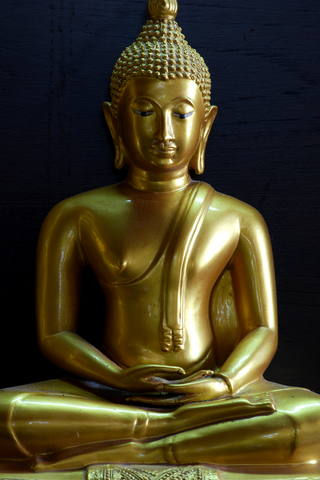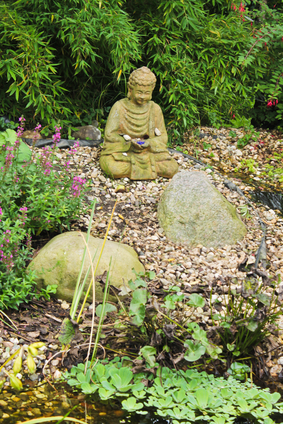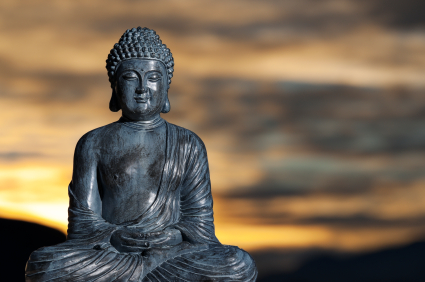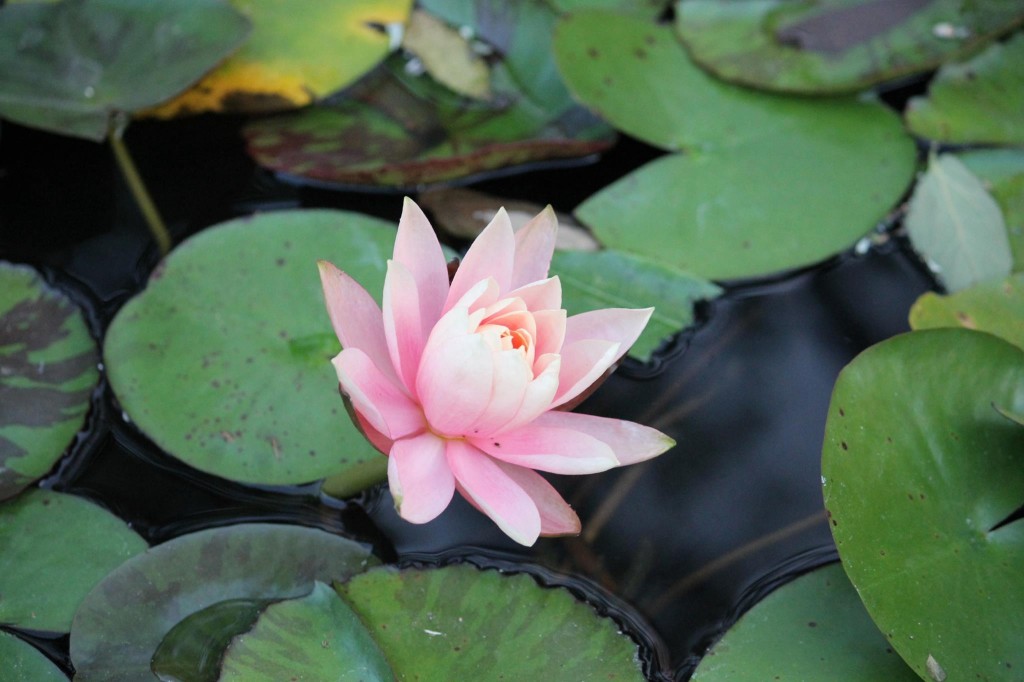Help!
If you are as independent as I am, asking for help might be alien to you. Personally, I am getting better at it. But I still have the inclination to try to do something first on my own rather than rely on someone else to do for me, even if it may be detrimental.
I am having surgery today. I’ve been in significant discomfort for weeks now and that discomfort has been increasing daily. And I was going to drive myself to the procedure until my friends stepped in and took over. Don’t you think that I would realize how silly that idea was?
So, while I spend today contemplating the ‘thank goodness, folks who love me stepped in,” I challenge you to ask yourselves the following question:
When was the last time you asked for help? Better yet, how easily do you ask for and receive help?
Reading Karen Rosenthal Hilsberg’s “Lessons in Living” and her struggle to make sense of a life unraveled as her husband dies, I can’t help but reflect on a close friend who was ill several years ago. Despite a ‘take no prisoners’ attitude, he had trouble acknowledging the seriousness of his condition and even more trouble asking for support. Quite honestly, he doesn’t do too well in that department and neither do I. However, like him, I readily offer assistance to those I love and care about, whenever I can.
So, why the divide between offering and taking?
Hilsberg writes that “what I learned during this intense time of life was profound. I learned to ask for help from others.” Utilizing the mindfulness practice of the Zen Master, Buddhist monk and scholar Thich Nhat Hanh and the Buddhist Master Thich Phuoc Tinh, she says that she discovered that asking for help really wasn’t much different than providing it, that the helper and ‘helpee’ were intertwined, unable to exist without the other. By allowing assistance, she was able to provide others who cared about her and her family an opportunity to “be of service and to practice generosity” and in doing so, make a shift away trying to do everything on her own. Most importantly, by reflecting on how much she personally enjoyed being of service when loved ones needed her, she was able to accept how appropriate and okay it was to actually ask for help from others — to allow them to “do” as much as she did. The result? Her “wellbeing improved as [she] felt [her] burden shared by many hands.”
As caretakers, many women often do not adapt well to being on the “receiving end.” And yet, most of us are aware of the importance of social ties, friendships and support to our health and wellbeing, particularly as we age. So why do we find it so difficult to ask for and receive help? How do we acknowledge that be cared for does not equate to losing power or control but actually improves outlook, wellbeing, and ability to deal with any challenges that we might be facing, that allowing others to “do” empowers and does not ‘de-power?’ Is it fear of refusal? Or fear of letting go?
Mastering the art of asking for help is difficult. However, it behooves us to do so, not only for our wellbeing but for the wellbeing of those around us who wish to help.
My friend deserved the kind of care that he has provided to others in his life for most of his life.
Guess what?
So do I.
And so do you.
Feeling lonely? Meditate!
I spent this past weekend in NYC, the place that I once called home and in my heart of hearts, still do. But as I sat at lunch yesterday and watched people stroll by, I realized that many of them were alone. And I remembered that despite the millions of people in NY, I often felt very much alone there. I don’t feel that way very often any longer and yet, I imagine that it’s not simply a geographically-driven emotion but rather, life changes have a lot to do with loneliness. Indeed, by the time that midlife hits full on, many adults find themselves going through a divorce, losing loved ones to illness and watching their children leave the house for college or to start their lives and careers. Sound familiar? Well, then you might also find the link of these events to loneliness and in turn, to an increased risk of heart disease, depression and even premature death, important.
While the underlying reasons for these associations are complicated, suffice it to say, research suggests that stress can trigger inflammation that has been shown to increase the risk for chronic illness and death. Fortunately, for the first time, there may be a solution: meditation.
Researchers from UCLA say that study findings show that incorporating 30 minutes of daily meditation practice may help to alter the way our genes bolster inflammatory processes in the body by altering feelings of loneliness. Indeed, when people between the ages of 55 and 85 were trained in mindfulness meditation practice, they did more than find inner peace. Here’s the skinny:
Half of the participants participated in a trainer-led, two-hour mindfulness sessions in which they were guided through mindfulness meditation exercises, mindful yoga and stretching, and group discussions that were intended to help promote mindful awareness of the present moment, and moment to moment experience; these sessions were held weekly for eight weeks. They also participated in a day-long retreat towards the end of the study where their practice were more closely integrated and discussed. Additionally, these men and women practiced at least 30 minutes of mindfulness sessions for six days a week during the program.
Mind you, the study was very small and included only 40 participants. However, learning how to live in the present appeared significantly reduce feelings of loneliness and alter both genes and protein markers of inflammatory by as much as 25%, including the signal that activates the inflammatory processes in the body. The researchers say that also observed a decline in C-reactive protein, which has been linked to heart disease.
Loneliness..scientifically, it’s been described as “a state of social distress that arises when there is a discrepancy between one’s desired and actual social relationships.”
I like this description better, from the great Buddhist nun and teacher, Pema Chodron:
Loneliness is “restless and pregnant and hot with the desire to escape and find something or someone to keep us company. When we can rest in the middle [through meditation practice], we begin to have a nonthreatening relationship with loneliness, a relaxing and cooling loneliness that completely turns our fearful patterns upside down.”
Mindfulness meditation. It may alleviate more than heartache and benefit in ways that we have yet to imagine.
Read More
Wednesday Bubble: cultivate your inner lotus
[Photo credit: Priya Ramesh, Coorg India. 2013]
On Monday, I shared information about the benefits of mindful meditation and being present and how they positive affected stress and the hormone cortisol. I cannot stress the importance of incorporating stress busters into your life; not only is your mental health at stake but the risks to your overall health are numerous. If meditation is not your thing, there are other strategies to consider, including yoga, Tai Chi, acupuncture and deep breathing. There is also Qigong.
Qigong is a Chinese practice harkening back more than 4,000 years. In many ways, it incorporates the best of several strategies, including alignment of movement and breath, meditation and yoga (strength, flexibility). My friend and colleague, Jeri Hemerlein, teaches a female-specific form of Qigong at the Yoga Center in Columbia, MD. Known as Radiant Lotus Qigong, Jeri describes it as a flowing form combining ancient Chinese and Tibetan techniques to health issues unique to women. Radiant Lotus Qigong uses the lotus flower as a metaphor for female resilience and flexibility. The movements open the body’s energy, gently stretching and releasing tension from muscles, joints and spine while waking up the immune system. The form seeks to enhance the whole body health of women from menstruation to post menopause, while supporting the Divine Feminine nature and helping the woman return to an innate state of loving compassion, wisdom and inner strength during times of stress and intense emotions. The form was created by Advance Qigong practitioner Daisy Lee, who developed it after studying with various Qigong teachers who were able to successfully address women-specific issues through original and individual forms.
If you visit Daisy’s website, you can learn more. Or, if you are local to the DC/MD area, you can attend a workshop that I am blessed to be giving with Jeri on April 23, 2013 at 6:30 pm in Annapolis. ‘Cultivate Your Inner Lotus: Menopause, Stress & Qigong” aims to help you gain a better understanding of stress during menopause and provide you with specific techniques to address it on your own. I hope that you’ll consider joining us.
Cultivating your inner lotus may be the best thing you can do for yourself.
Read More
The present of being present: cortisol and mindfulness meditation
 It seems that I write about stress a lot on Flashfree. Perhaps that is because like many, my life — namely my work — can be very stressful from time to time. However, according to the American Psychological Association, I’m not alone; most Americans suffer from moderate to high stress and the problem does not appear to be going away. Moreover? Work issues are the primary stressors in 77% of people.
It seems that I write about stress a lot on Flashfree. Perhaps that is because like many, my life — namely my work — can be very stressful from time to time. However, according to the American Psychological Association, I’m not alone; most Americans suffer from moderate to high stress and the problem does not appear to be going away. Moreover? Work issues are the primary stressors in 77% of people.
From a midlife perspective, stress and its related hormone, cortisol, can cause a lot of health-related problems. In fact, not only does cortisol promote a fat dump in the midsection, but experts say that overexposure to cortisol and other stress hormones has a cumulative affect, leading to heart disease, sleep issues, digestive issues, obesity, depression and worsening of skin conditions. It’s critical to counter stress’ negative effects before they take their toll and start to do permanent damage. One important strategy to achieve a better balance is meditation.
Fortunately, a team of researchers at UC Davis’ Center for Mind and Brain are devoting time to studying psychological and physiological processes in order to explain the benefits of meditation. The framework for this effort is the Shamatha Project, which is apparently the most comprehensive meditation study ever undertaken. Most importantly, this scientific twist on a centuries old practice may ultimately elevate meditation’s place in Western medicine.
To better understand the effects of meditation on stress, the research team recently took 60 people (between the ages of 22 and 69) who had some prior experience with meditation, measured cortisol and body mass index and their current degree of ‘mindfulness,*’ and then randomly assigned them to a three month meditation retreat or a waiting list. Those on the waiting list participated in the same, three-month retreat at a later date. (*Participants completed a mindfulness questionnaire that measured the degree that these people directed their cognitive resources to sensory experiences and how often they drifted, as well as their ability to let go of distressing thoughts.)
At the retreat, the group met two times a day for one hour, guided sessions and the rest of the time (around 6 hours) practiced solo meditation in 20 to 30 minute increments. Meditation practices were focused on mindful breathing and relaxation and promoted compassion and kindness toward others. Overall, the emphasis was on present awareness rather than meandering into the future of ‘what if’s.’ During the middle of the retreat, all were encouraged to enter into silence for a period of about four weeks. Aside from scheduled meals and group meditations, everyone was on their own to decide sole meditation, exercise and free time.
Did learning how to direct and focus attention away from uncontrolled, ruminating thoughts and worry and toward a chosen target reduce cortisol levels? The researchers say that they found a correlation between a high score for mindfulness and a low score in cortisol, both before and after the retreat. The results were greatest for participants who were able to achieve the greatest increases in mindfulness, that is, the more that they reported directing their thoughts to the present/immediate experience, the lower their resting cortisol levels were. Participants also experienced large improvements in overall wellbeing, daily mood and emotional functioning.
While the findings do not prove cause and effect, they do suggest that changing the mind paradigm to focus on the now rather than the future may ultimately help to reduce our tendency to think about the past or worry about the future and in turn, counter excessive cortisol release.
Tonya Jacobs, a postdoctoral researcher and the study’s lead author, explains that “the idea that we can train our minds in a way that fosters healthy mental habits and that these habits may be reflected in mind-body relations is not news; it’s been around for centuries. But, accumulating evidence might help the idea — that the present is the best present we can give ourselves — be better integrated into Western mentalities and health practices.
Mindful meditation may ultimately prove to be one of our strongest defenses against stress and its companion, cortisol!
Read MoreWednesday Bubble: Relax, just do it.
You think that hormones are the only solution to hot flashes?
Think again!
This is not the first time that I have reported that the mind-body connection is an important key to menopausal symptoms. Moreover, it probably won’t be the last. In fact, in a second study published within the past 18 months in Menopause journal, researchers are again moving away from hormones and moving towards applied relaxation. (A related study topic-wise can be found here.)
This time, Swedish researchers assigned 60 women in menopause to either ten sessions of group therapy combined with relaxation or to no intervention for three months. All of the women had been experiencing moderate to severe hot flashes at least 50 times a week. During the 10 group therapy relaxation sessions, the women were taught to methodically move through the body’s muscle groups and use breathing techniques to systematically relax each group. They were then provided with exercises to practice daily at home, with the the goal being to learn the relaxation method and self-manage their symptoms. During this period, all participants kept a regular hot flash diary and filled out a quality of life survey on three different occasions. They also provided the researchers with a sample of their saliva.
The findings? Women practicing daily relaxation and engaging in regular coaching sessions actually reduced their daily hot flash count from an average of 9.1 to 4.4 a day; that’s about a 50% reduction. In the group of women who had no interventions, a reduction in daily hot flashes was also observed but on average, these women experienced less than two fewer flashes a day; this is likely the result of what researchers consider a ‘placebo effect.’
More importantly, benefits of relaxation remained for at least three months after the study ended and the final therapy sessions. The women who practiced relaxation also reported improvements in overall wellbeing and quality of life, including sleep and memory. What’s more, saliva testing showed reductions in cortisol; as I’ve written previously, stress leads to cortisol release and ups the hot flashes ratio. Once that cycle starts, who knows how long the endless loop plays out?!
Time to stop the loop? Forget the drugs. Breathe deeply, exhale and repeat. Just do it.
Read More
Bringing back the woo-woo…or the ‘ain’t no woo woo.’ Mindfulness, meditation and stress
Are you familiar with the end of the year crunch? I’m in the midst of it and although life is scheduled to slow starting next week, I am finding that I am having difficulty keeping up. So, today, I’m bringing back the woo woo in hopes that it might influence my own inability to calm down the adrenals right now.
Apologies for being self-serving. To be truly honest, this is one of my favourite posts of this year so I’m bringing it back. One word at a time. Let’s start with the first:
Relaxation.
It’s so elusive for many of us. And yet, so important to our overall health and wellbeing. In fact, researchers are finally discovering how relaxation actually counters changes that occur in our bodies that result from exposure to constant stressors.
For decades, Dr. Herbert Benson, founder of the Mind-Body Institute in Cambridge, MA and an associate professor at Harvard University, has been writing about the relaxation response, a “mind-body intervention that elicits deep changes in the physical and emotional response to stress.” Strategies that elicit the relaxation response include meditation, yoga, tai chi, Qi gong, deep breathing, controlled muscle relaxation and guided imagery. And although many would like to point to the “woo woo” factor at-play, an evolving and wide body of published literature is indicative of how interested the medical community is in the mid-body connection and the positive changes that these practices promote, including a slowing or heart rate, a reduction in blood pressure, improvements in blood sugar and fats, and even boosts in our immune system. However, what has long eluded researchers is what actually happens in the body to achieve these improvements.
In a novel study published in 2008 in PLoS ONE, Dr. Benson and his colleagues looked closely at 19 volunteers who had practiced relaxation response strategies (e.g. meditation, yoga, repetitive prayers) for as long as 20 years and compared them to 20 novices, individuals with no relaxation practice experience. These novices were provided with training sessions for 8 weeks that included information about how to reduce daily stress and the relaxation response and a 20 minute, individually-guided session comprising diaphragmatic breathing, a body scan and meditation.For 8 weeks thereafter, the novices then used a 20-minute relaxation CD at home and were asked to review the informational brochures. Blood samples and analysis of gene expression between experienced and novel relaxation practices, and pre- and post-training were then compared.
Importantly, while the researchers observed distinct changes in the genes in experienced relaxation practitioners compared to novices, when the novices started to incorporate relaxation practice into their lives, they also started to express similar positive alterations in their genes. Moreover, these changes are directly related to how cells respond to stress and create free radicals and inflammation that can lead to long-term damage. Additionally, type of relaxation strategy that was practiced was of no important; by achieving a relaxation state, individuals could make positive changes in their cellular structures thought to promote health.
Both inner and outer psychological states and environmental factors play a role in how women experience peri and post-menopause, their self-esteem, attitudes and severity of symptoms. If a daily practice of some sort of relaxation strategy can actually alter genes in a way that improves health and well-being, why can’t that daily practice also improve the menopausal/midlife experience?
While I’ve long embraced the idea, I’ve never actually made a concerted effort to incorporate some sort of relaxation strategy into my daily activities. I’m going to change that. Ain’t no woo woo but a woot woot so far as I can tell.
Read More










